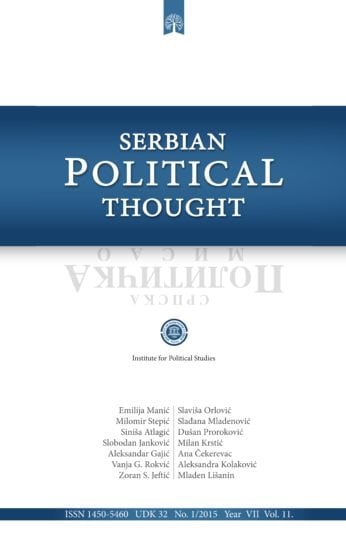Fear of Ideology: Political Theory and Political Practice in Contemporary Russia
Fear of Ideology: Political Theory and Political Practice in Contemporary Russia
Author(s): Stevan GajićSubject(s): Social Philosophy, Politics and Identity
Published by: Институт за политичке студије
Keywords: Russia; conservatives; liberals; realists; ideology; syncretism; sovereign democracy; constitution; central bank; Putin; Surkov
Summary/Abstract: The battle of ideas has raged in Russia since the times of Peter the Great and Catharine the Great and continues even today. The front line is between the liberals (Westernisers, Europhiles) and a camp that could broadly be called conservatives (Slavophiles, Eurasianist). Today’s Russia faces a new challenge, having emerged from a rigid communist system, as before in history the country is faced with soul-searching. In today’s Russia there are three broad ideological camps: liberals, conservatives and realists. Beyond this division they can be defined as systemic and non-systemic, according to whether they are recognised as legitimate by the Kremlin and whether they themselves see the state as a legitimate actor. Liberals and conservatives can be in or out of the system, but not the realists, who because of their centrist position are voluntarily locked in to the system. In this article, I explore the dynamics between the three camps, the attitude of the state towards them and their representation in institutions such as universities and the media. I also determine their positions through a set of test questions pertaining to the 1993 Constitution, the Russian Central Bank and the conflict in Ukraine. I also want to explain the position of conservatives, the only camp striving to create a new ideological formula, as well as the attitude of the state to conservatism in the atmosphere of the new Cold War. Or is the state deploying its spin-doctors and only using these divisions as a tool for creation of a never-ending political reality show? The symbol of this political reality show in Russia is the Kremlin’s spin-doctor-in-chief, Vladislav Surkov, who used sovereign democracy as a syncretic term and a temporary ideological placeholder to balance the ideological camps. Finally, I contemplate what might lie ahead for Russia and whether the state, currently ever balancing between the three camps, could swing towards conservatism.
Journal: Serbian Political Thought
- Issue Year: 18/2018
- Issue No: 2
- Page Range: 103-126
- Page Count: 24
- Language: English

